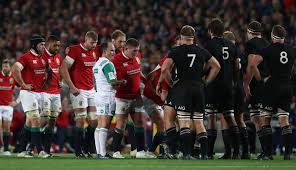Microsoft’s Activision Blizzard Deal to Power Its Netflix-of-Gaming Aspirations


- Biography
- @aatilley
- aaron.tilley@wsj.com
- Biography
- @saraheneedleman
- Sarah.Needleman@wsj.com
Microsoft Corp.’s MSFT 2.78% acquisition of Activision Blizzard Inc. ATVI 0.15% aims to shake up the game industry by expanding the software giant’s library of blockbuster videogames and bolstering its efforts to entice consumers to its cloud-gaming service.
The planned $75 billion deal would be Microsoft’s biggest ever and its most ambitious investment yet in its plan to turn its Game Pass subscription service into the Netflix of gaming. Once the acquisition closes, Microsoft said it would be the world’s third-largest game company by sales, with 30 game studios under its belt, including the developers of popular franchises Call of Duty, World of Warcraft and Candy Crush.
Around a decade ago, Microsoft shifted to bringing its corporate clients to subscription-based cloud services. The move has helped lift its market value to $2 trillion and maintain its status as one of the world’s top tech companies. The Activision acquisition positions Microsoft to use the same tactic on consumers by persuading gamers to abandon their expensive hardware and play on the cloud.
“Together with Activision Blizzard, we have an incredible opportunity to invest and innovate, to create the best content, community and cloud for gamers to build substantial new value for our shareholders,” said Microsoft Chief Executive Satya Nadella on an investor and media call Tuesday.
With more gamers playing on smartphones rather than pricey game consoles and computers, companies around the world are racing to develop services for streaming high-end games to all kinds of devices the same way movies and TV shows are streamed. Amazon.com Inc., Alphabet Inc.’s Google, Sony Group Corp. and a host of smaller players are trying, but Microsoft has taken a large early lead in the emerging cloud-game space by spending billions of dollars on acquisitions and infrastructure, analysts said.
“Microsoft has big aspirations in gaming,” said Mark Moerdler, a Bernstein Research analyst. “Microsoft has been buying a number of studios because of what they’re trying to build with Game Pass and subscription gaming.”
If the company can convert some of Activision’s nearly 400 million monthly active users into subscribers, it could significantly bolster its cloud-game business, Mr. Moerdler said.

Cloud gaming is an emerging technology that allows people to stream games using nearly any internet-connected device with a screen, much as they stream videos on Netflix, Hulu and other platforms. Streaming games is more challenging, though, because games are interactive and require a lot more data to run smoothly. While Netflix moved into mobile games last year, it has so far offered only a handful of games that subscribers must download to an Android or iOS device—not games that can be streamed via the cloud.
Consumer spending on cloud-game services reached $3.7 billion last year, with Microsoft’s Game Pass accounting for 60%, according to research firm Omdia, which forecasts total cloud-game revenue will hit $12 billion by 2026.
Along with announcing its planned acquisition, Microsoft said Tuesday that subscribers to Game Pass—which includes cloud gaming, online multiplayer support and access to a large, rotating library of games—have increased 39% in the past year to 25 million.
Mr. Nadella said Microsoft plans to bring as many Activision games as it can to Game Pass. As it has done with games from developers it has acquired previously, Microsoft could make future games from Activision exclusive on Game Pass and Xbox consoles, analysts said.
“We do think our investment in cloud creates a unique capability for triple-A content to reach any screen on any device,” Microsoft game chief Phil Spencer said after the Activision deal was announced.
Growing its cloud-game business will help Microsoft diversify further into consumer-facing businesses. That could narrow the leads Sony’s PlayStation has on Microsoft in game hardware and Amazon’s in cloud services. Mr. Nadella’s broader strategy for Microsoft puts cloud computing at the center of a collection of disparate businesses, from corporate software and enterprise data storage to social media and digital advertising.
Microsoft’s commitments to gaming and the cloud have been years in the making. Since taking over in 2014, Mr. Nadella has leaned heavily on offering the company’s enterprise customers cloud-computing services to power their businesses. This strategy has been the primary driver behind Microsoft’s ascent to become the world’s second-most-valuable company behind Apple Inc., with a market valuation of nearly $2.3 trillion.
For years, gaming took a back seat at Microsoft, where consumer-facing businesses got less attention, former and current employees said. The Xbox team was slotted under the Windows operating system and didn’t directly report to the CEO, as Mr. Nadella focused on selling the Office 365 business-software suite and developing the cloud-computing business. The Xbox group struggled to find its place in this structure, the employees said, as the unit was always competing with Windows priorities for investments, typically without success, they said.
“Under Windows, we had to make trade-offs between investing in big gaming initiatives and features for Windows enterprise customers,” said Richard Irving, who spent 12 years working on Xbox before leaving Microsoft in 2016. “That was the challenge of being in the Windows division.”
A Microsoft spokesman declined to comment on the company’s previous management of its game business.
A few years ago, Microsoft decided to become more aggressive about expanding its cloud usage to gaming, its main touch point with consumers. Internally, there has been concern that Microsoft is too dependent on enterprise for growth, said people familiar with company strategy. The decision to do more in gaming came after Microsoft looked at the possibility of buying consumer-facing businesses including TikTok, Pinterest and Discord, the people said.
It started snapping up game makers, spending more than $10 billion to buy game studios and build a vast library. The company has added popular titles such as the Doom franchise, acquired last year.
Microsoft isn’t alone. The global videogame industry has been riding a wave of consolidation and investing in recent years. Spending on mergers and acquisitions nearly tripled to $26.2 billion in 2021 from $8.9 billion in 2020, data from PitchBook show. And venture-capital deals nearly doubled to a record $11.2 billion from $6.4 billion, according to the private-market-data firm.
Key coverage of misconduct allegations at Activision Blizzard and of Microsoft's deal to acquire the videogame maker, selected by the editors
 Jan. 19, 2022Deal Powers Microsoft's Bid to be the Netflix of Gaming
Jan. 19, 2022Deal Powers Microsoft's Bid to be the Netflix of Gaming
 Jan. 18, 2022Microsoft to Buy Activision in $75 Billion Deal
Jan. 18, 2022Microsoft to Buy Activision in $75 Billion Deal
 Jan. 18, 2022Activision Blizzard’s Workplace Problems Spurred Deal
Jan. 18, 2022Activision Blizzard’s Workplace Problems Spurred Deal
 Jan. 18, 2022Game Industry Moves to Mobile, Metaverse
Jan. 18, 2022Game Industry Moves to Mobile, Metaverse
 Jan. 18 2022Deal Likely to Face Antitrust Scrutiny
Jan. 18 2022Deal Likely to Face Antitrust Scrutiny
 Jan. 17, 2022Activision Pushes Out Dozens Over Workplace Misconduct
Jan. 17, 2022Activision Pushes Out Dozens Over Workplace Misconduct
 Nov. 16, 2021CEO Knew for Years About Sexual-Misconduct Allegations
Nov. 16, 2021CEO Knew for Years About Sexual-Misconduct Allegations
 July 26, 2021California's Suit Against Activision Shows Problems Remain in Videogame Culture
July 26, 2021California's Suit Against Activision Shows Problems Remain in Videogame Culture
Write to Aaron Tilley at aaron.tilley@wsj.com and Sarah E. Needleman at sarah.needleman@wsj.com
Copyright ©2022 Dow Jones & Company, Inc. All Rights Reserved. 87990cbe856818d5eddac44c7b1cdeb8


 New Zealand
New Zealand Argentina
Argentina  Australia
Australia  Austria
Austria  Brazil
Brazil  Canada
Canada  Germany
Germany  Ireland
Ireland  Italy
Italy  Malaysia
Malaysia  Mexico
Mexico  Poland
Poland  South Africa
South Africa  United Kingdom
United Kingdom  United States
United States 




















